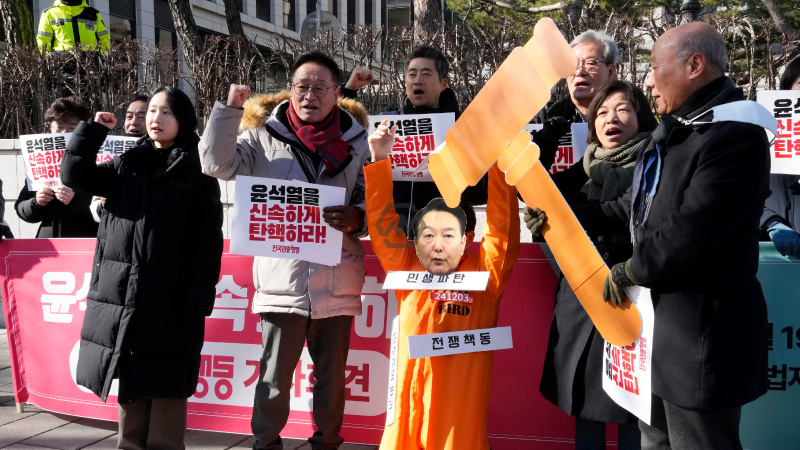- South Korean President Yoon Suk Yeol faces both criminal and impeachment trials over his martial law decree.
- He denies rebellion charges, arguing martial law was a temporary measure.
- His arrest and impeachment have sparked political unrest and legal scrutiny.
Yoon Suk Yeol, South Korea’s conservative president, appeared in two separate courts in Seoul, contesting rebellion charges in one and defending himself against impeachment in the other.
The Seoul Central District Court is reviewing whether to release Yoon from custody as he awaits trial, while the Constitutional Court determines the validity of his impeachment.
South Korea’s President on Trial: A Nation in Crisis
Yoon’s decision to declare martial law lasted only six hours, yet its impact continues to reverberate through South Korea’s political and legal system. Prosecutors argue that his actions were an unconstitutional power grab, while Yoon insists they were necessary to counter legislative obstruction by the opposition.
His impeachment by the National Assembly in December effectively suspended his presidential powers, leaving Prime Minister Han Duck-soo to oversee government affairs. Han, a key witness in the impeachment trial, has testified that Yoon did not consult his Cabinet before making the martial law declaration.
The rebellion charges, which carry a potential life sentence or even the death penalty, mark an unprecedented moment in South Korean history. Past leaders have faced corruption scandals, but Yoon is the first sitting president to be arrested on such grave accusations. His defense team has dismissed the allegations as politically motivated.
Meanwhile, the Constitutional Court is moving toward a decision that could permanently remove Yoon from office. If he is convicted of rebellion, the ruling party will face an uphill battle in upcoming elections, as the opposition capitalizes on the controversy.
As Yoon fights for his political survival, his trial raises critical questions about the balance of power in South Korea’s democracy.
“Power tends to corrupt, and absolute power corrupts absolutely.” — Lord Acton



